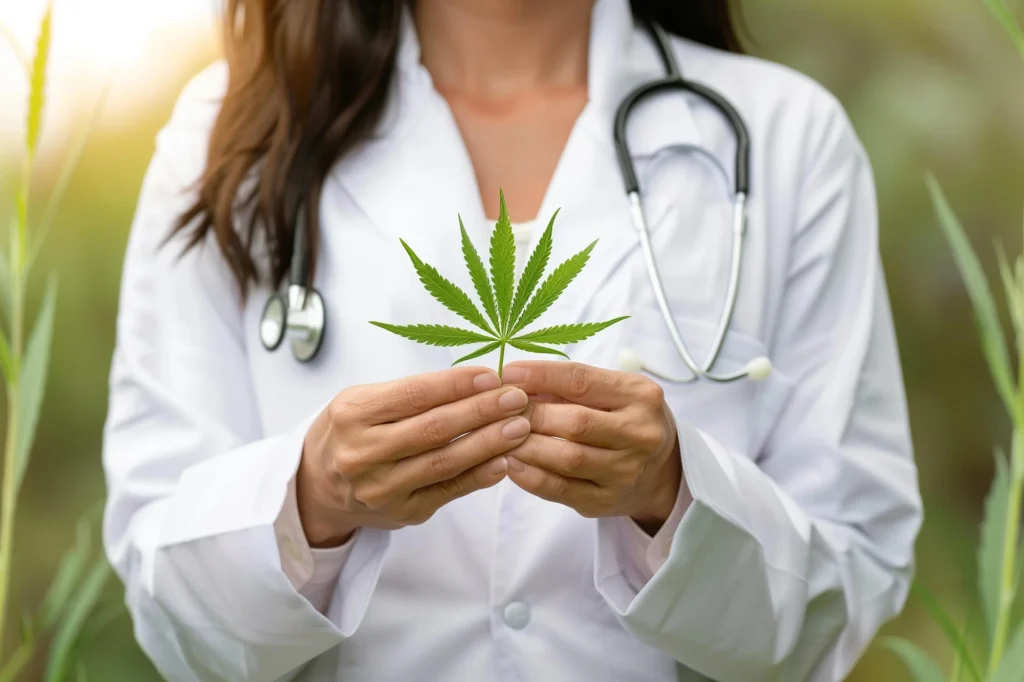
Introduction to Cannabis and Health
Cannabis, known scientifically as Cannabis sativa, has been used for medicinal and recreational purposes for centuries. Despite its long history, modern society remains divided over its health implications. This introduction sets the stage for a deep dive into the realities of cannabis, addressing its effects, benefits, and potential risks.
Myth 1: Cannabis is a Gateway Drug
One of the most persistent myths is that cannabis use inevitably leads to the consumption of harder drugs. This section examines the origins of this myth, explores the scientific research surrounding it, and provides evidence to debunk the gateway drug theory.
Understanding the Gateway Theory
The gateway drug theory suggests that the use of less harmful drugs can lead to a future risk of using more dangerous substances. Proponents argue that cannabis users are more likely to experiment with drugs like cocaine or heroin. However, correlation does not imply causation. Studies show that many factors, including socio-economic status and environment, play a significant role in drug use patterns.
Research Evidence
Numerous studies have debunked the gateway theory. For example, research published in the Journal of the American Medical Association (JAMA) found no significant link between cannabis use and the subsequent use of harder drugs. The study emphasized that most cannabis users do not progress to more dangerous substances.
Myth 2: Cannabis Has No Medicinal Value
Another widespread myth is that cannabis lacks medicinal benefits. This section explores the medicinal properties of cannabis, supported by scientific evidence, and highlights its therapeutic potential.
Medicinal Properties
Cannabis contains over 100 cannabinoids, with THC and CBD being the most studied. These compounds interact with the endocannabinoid system in the human body, which regulates various physiological processes such as pain, mood, and appetite.
Therapeutic Applications
Cannabis has been shown to be effective in treating a variety of conditions, including chronic pain, epilepsy, multiple sclerosis, and chemotherapy-induced nausea and vomiting. The FDA has even approved a cannabis-derived drug, Epidiolex, for the treatment of certain types of epilepsy.
Research and Clinical Trials
Extensive research and clinical trials have demonstrated the efficacy of cannabis in medical treatments. For instance, a study in The Lancet Neurology highlighted that cannabis-based treatments significantly reduced the frequency of seizures in patients with Dravet syndrome, a severe form of epilepsy.
Myth 3: Cannabis Use Leads to Cognitive Decline
Many believe that cannabis use causes irreversible cognitive damage, particularly in young users. This section reviews the scientific evidence on cannabis and cognitive function, addressing both short-term and long-term effects.
Short-Term Effects
Cannabis use can temporarily impair cognitive functions such as memory, attention, and coordination. However, these effects are typically short-lived and reversible once the drug is metabolized.
Long-Term Effects
The long-term impact of cannabis on cognitive function is more complex. Some studies suggest that heavy, prolonged use during adolescence may be associated with subtle cognitive decline. However, other research indicates that these effects are minimal and that cognitive function can recover with sustained abstinence.
Balanced Perspective
It’s essential to consider the dosage, frequency of use, and age of onset when evaluating the cognitive effects of cannabis. While there are potential risks, they are often exaggerated and do not apply uniformly to all users.
Myth 4: Cannabis is Highly Addictive
This section tackles the misconception that cannabis is as addictive as substances like heroin or nicotine. It explains the differences between physical dependence, psychological dependence, and addiction.
Understanding Dependence and Addiction
Cannabis can lead to psychological dependence in some users, particularly those who consume it frequently and in large amounts. However, the addiction potential of cannabis is relatively low compared to other substances. The National Institute on Drug Abuse (NIDA) estimates that about 9% of cannabis users develop a dependence, a rate much lower than that for alcohol or nicotine.
Withdrawal Symptoms
Cannabis withdrawal symptoms are generally mild and include irritability, insomnia, and reduced appetite. These symptoms are typically short-lived and manageable compared to withdrawal from other substances.
Treatment and Support
For those who develop a dependence on cannabis, various treatment options are available, including behavioral therapies and support groups. These interventions have been effective in helping individuals reduce or quit their use.
Myth 5: Cannabis Causes Lung Cancer
This section examines the belief that smoking cannabis is as harmful to the lungs as smoking tobacco, particularly regarding cancer risk.
Lung Health and Cannabis
Smoking any substance can irritate the lungs and lead to respiratory issues. However, research has not conclusively linked cannabis smoking to lung cancer. Studies, including those published in the Journal of Thoracic Oncology, suggest that the risk is much lower than that associated with tobacco smoking.
Alternative Consumption Methods
For those concerned about lung health, there are various alternative methods of consuming cannabis, such as vaporizing, edibles, and tinctures. These methods reduce the potential for respiratory harm while still delivering the therapeutic benefits of cannabis.
Myth 6: All Cannabis Products Are the Same
Many people mistakenly believe that all cannabis products have the same effects and potency. This section explains the diversity of cannabis products and their varying effects on health.
Variety of Products
Cannabis comes in various forms, including flower, concentrates, edibles, and topicals. Each type has different potencies and effects, depending on the cannabinoid and terpene profiles.
Understanding Labels and Dosages
Educating consumers on reading labels and understanding dosages is crucial for safe consumption. Knowing the THC and CBD content can help users choose products that match their desired effects and tolerance levels.
Choosing the Right Product
Selecting the appropriate cannabis product involves considering individual health needs, preferences, and experience levels. Our trained staff at Kush Weed Coffeeshop can guide patrons to make informed choices.
FAQs
Is cannabis a gateway drug?
No, extensive research shows no significant link between cannabis use and progression to harder drugs. Many factors, including environment and socio-economic status, influence drug use patterns.
Does cannabis have medicinal benefits?
Yes, cannabis has been shown to be effective in treating conditions like chronic pain, epilepsy, and multiple sclerosis. The FDA has approved cannabis-derived medications for certain medical conditions.
Can cannabis use lead to cognitive decline?
While short-term use can temporarily impair cognitive function, long-term effects are less clear. Some studies suggest potential risks with heavy, prolonged use, especially during adolescence, but these effects are often reversible.
Is cannabis addictive?
Cannabis has a lower addiction potential compared to substances like alcohol and nicotine. About 9% of users develop dependence, and withdrawal symptoms are generally mild and short-lived.
Does smoking cannabis cause lung cancer?
Research has not conclusively linked cannabis smoking to lung cancer. However, smoking can irritate the lungs, and alternative consumption methods like edibles and vaporizers can mitigate this risk.
Are all cannabis products the same?
No, cannabis products vary widely in their effects and potency. Understanding the cannabinoid and terpene profiles of different products is essential for choosing the right one for your needs.
Conclusion
Understanding the truth about cannabis and its impact on health is crucial in making informed decisions about its use. By debunking common myths and presenting evidence-based facts, we aim to foster a more informed and responsible cannabis community. Whether for medicinal or recreational purposes, knowing the realities of cannabis can help users navigate their choices with confidence and safety.
